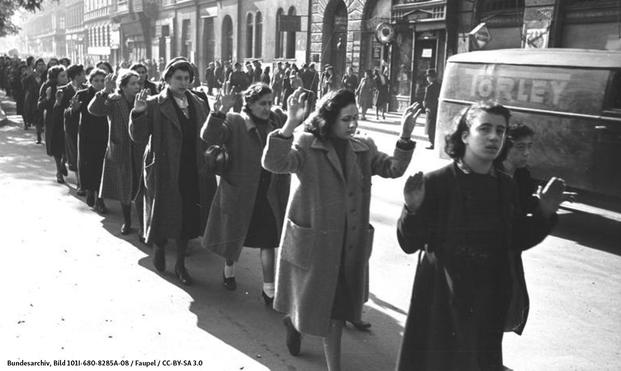1/ 🧵 A recent study on Holocaust knowledge across various populations reveals concerning gaps in awareness and understanding. However, several methodological biases may limit the reliability of its conclusions. Let's delve into these issues. #HolocaustEducation #WeRemember
2/ Selection Bias: The study's online recruitment method may exclude significant portions of the population, such as the elderly or those in rural areas with limited internet access. Additionally, unclear demographic quotas raise questions about the representativeness of certain social or cultural subgroups. #ResearchBias #SurveyMethodology
3/ Response Bias: Given the sensitive nature of the Holocaust, respondents might provide socially desirable answers, especially in countries where there's moral pressure to express historical awareness. Personal biases could also influence responses, leading to conformity or avoidance of appearing uninformed. #ResponseBias #SocialDesirability
4/ Cultural Bias: Perceptions of the Holocaust vary greatly across countries due to different historical and educational contexts. For example, in Germany and Austria, where the history of the Holocaust is taught intensively, knowledge of the events and perceptions of the risk of recurrence are certainly different from those in other countries, such as the United States or Romania. #CulturalBias #HistoricalContext
4/ This cultural bias makes comparisons between countries complex and calls for caution when interpreting the results. #CulturalBias #HistoricalContext
5/ Data Collection Period: Conducting the survey between November 15 and 28, 2023, may have been influenced by current events, including debates or controversies related to the Holocaust or anti-Semitism. These events could have exacerbated certain perceptions or changed respondents’ responses.
#SurveyTiming #CurrentEvents
#SurveyTiming #CurrentEvents
6/ Margin of Error Bias: The margin of error of ±3.1% may seem relatively small overall, but it becomes significant when considering subpopulations or responses to very specific questions. This bias can make comparisons between certain groups or countries less reliable, particularly in contexts where data variation is minimal. #MarginOfError #StatisticalBias
7/ Non-Response Bias: Individuals less interested or informed about the Holocaust, or those with lower education levels, may be less likely to respond to a survey. This could lead to an over-representation of those more informed or sensitive to the issue, creating a bias in the results. #NonResponseBias #SurveyParticipation
8/ Question Order Bias: The sequence of questions can influence responses. If emotionally charged or sensitive questions are asked early in a survey, they could color responses to subsequent questions. This often-overlooked bias can significantly impact study conclusions. #QuestionOrder #SurveyDesign
9/ Sponsor Bias: Commissioned by the Claims Conference, an organization dedicated to Holocaust remembrance, there's a risk that the wording of questions or interpretation of results could be influenced by specific objectives. While this doesn't invalidate the study, it's crucial to consider this potential bias when analyzing the findings. #SponsorBias #ResearchIntegrity
10/ Perception of Holocaust Recurrence: The majority of respondents, with the notable exception of Romania, believe that an event similar to the Holocaust could happen again today. This reflects concern, particularly in the United States (76%) and the United Kingdom (69%). However, this perception could also be influenced by a social desirability bias, where respondents feel compelled to express such concern given the seriousness of the issue. #HolocaustAwareness #NeverAgain
11/ Knowledge of Victim Numbers: Many respondents underestimate the number of Holocaust victims. In Romania, for example, up to 28% believe that fewer than 2 million Jews were killed. This highlights significant educational gaps and may reflect local biases in how the Holocaust is taught or perceived. #HolocaustEducation #HistoricalFacts
12/ Ignorance or Doubt About the Holocaust: Approximately 20% of French adults and nearly 46% of young people aged 18 to 29 say they have not heard of the Holocaust. This figure deserves further validation, as it seems disproportionate to France’s traditional educational efforts on this subject. #HolocaustAwareness #EducationGaps
13/ Ability to Name Camps or Ghettos: A large proportion of Americans (48%) cannot name any concentration camps, highlighting a lack of awareness, probably related to the geographical distance from the European context of World War II. #HolocaustKnowledge #GeographicalBias
14/ Holocaust Distortion or Denial: The fact that 44% of Americans and 45% of Hungarians consider Holocaust denial or distortion to be common in their country indicates a growing concern about revisionist narratives. This could be related to the increasing presence of such narratives in the media and on social networks. #HolocaustDenial #CombatAntisemitism
15/ Support for Holocaust Education: Nearly 9 in 10 respondents, with particularly high support in the United States (95%), want Holocaust education to be strengthened. While this unanimity is positive, it could also reflect a social desirability bias, where respondents are reluctant to publicly dismiss such an important topic. #HolocaustEducation #WeRemember
16/ Overall Conclusion: While the study provides important insights into Holocaust knowledge and current concerns, it should be interpreted with caution. The methodological biases identified—including selection bias, cultural bias, and social desirability bias—limit the scope of the conclusions. However, the study highlights gaps in collective memory and education about the Holocaust, emphasizing the need to continue educating future generations. #ResearchBias #HolocaustRemembrance
17/ For more detailed information, refer to the Claims Conference's official report:
https://www.claimscon.org/country-survey/ claimscon.org #HolocaustStudy #ClaimsConference
https://www.claimscon.org/country-survey/ claimscon.org #HolocaustStudy #ClaimsConference

The First-Ever 8-Country Holocaust Knowledge And Awareness Index Shows Growing Gap In Knowledge About The Holocaust, Especially In Young Adults - Claims Conference
The Majority Of Respondents In Almost Every Country Surveyed Feel Something Like The Holocaust Could Happen Again; A Majority Of Respondents Also Show Strong Desire For Holocaust Education